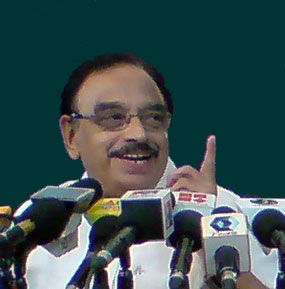
Education Minister P. K. Abdu Rabb
If Education Minister P. K. Abdu Rabb is to be believed, all self-financing professional colleges in the State are functioning well. He has told the Assembly so in a written answer on Monday. The only problem was that some of them lacked infrastructure. None asked how colleges without infrastructure could function well. Could the students be given practical training without labs? Could they learn without a good library? Should not the colleges have hostels? (Even the self-financing colleges run by government agencies do not have these facilities).
The High Court has identified as many as one and a half dozen private engineering colleges as under-performing in 2009-12 besides several Self-financing Engineering Colleges under the Institute of Human Resources Development (IHRD). The pass percentage in many of these colleges was low. (However, the parents, who push their wards into engineering colleges even if they don’t have the aptitude or ability to learn, should also be blamed here). Many did not have qualified teachers appointed with tenure. The practice of appointing teachers on daily wages is a bane of the higher education system. (It was only last month that their remuneration of was increased to decent levels, though their monthly earnings would still be about Rs. 20000 only).
When private self-financing colleges were sanctioned liberally, it was said that the under-performing ones will fall by the wayside. This has not happened with the aspirations of parents and students seeing no limits. They hope for things that are not achievable and the colleges without administrative and teaching infrastructure or teachers make hay while the sun shines.
All kinds of people and organisations, some with dubious past, have entered the self-financing education sector. It is high time that the government insisted on enforcement of strict norms for their functioning. No college without the required facilities and qualified teachers should be allowed to function. The minimum marks for admissions should be raised to prevent the tragedy of mass failures of students.


 The report of the expert committee on reforming legal education system in Kerala may shock budding politicians and political parties.
The report of the expert committee on reforming legal education system in Kerala may shock budding politicians and political parties. The CPI (M) candidate list for Kerala have several candidates with an SFI and DYFI background. So, there was criticism within the party that it had gone for a “campus recruitment” ignoring other feeder organisations. There is allegation that the choice of the new faces were intended to sideline those belonging to the Achuthanandan group.
The CPI (M) candidate list for Kerala have several candidates with an SFI and DYFI background. So, there was criticism within the party that it had gone for a “campus recruitment” ignoring other feeder organisations. There is allegation that the choice of the new faces were intended to sideline those belonging to the Achuthanandan group.
 The ban on use of mobile phones by pupils at the State School Festival points to utter failure of the education system in the State to teach good conduct and manners. It shows that though the festival is highly supervised by teachers, they fail to guide them in proper use of the mobile phones. Instead, they have chosen to seek the easy way out by banishing mobile phones from the venues.
The ban on use of mobile phones by pupils at the State School Festival points to utter failure of the education system in the State to teach good conduct and manners. It shows that though the festival is highly supervised by teachers, they fail to guide them in proper use of the mobile phones. Instead, they have chosen to seek the easy way out by banishing mobile phones from the venues. There is little doubt the guidance for living in the information age should start at the schools. It is at the schools and school festivals that pupils could be imbibed with values and behavioural norms that they would tend to follow in later years. If prohibition is used for behavioural control, that may not always yield results. The pupils, who could be stopped from using mobile phones at the school festivals, cannot be stopped from using it during their college days. And in this age, it is not difficult to get a photograph of anyone, and prohibition will do only more harm than good.
There is little doubt the guidance for living in the information age should start at the schools. It is at the schools and school festivals that pupils could be imbibed with values and behavioural norms that they would tend to follow in later years. If prohibition is used for behavioural control, that may not always yield results. The pupils, who could be stopped from using mobile phones at the school festivals, cannot be stopped from using it during their college days. And in this age, it is not difficult to get a photograph of anyone, and prohibition will do only more harm than good.